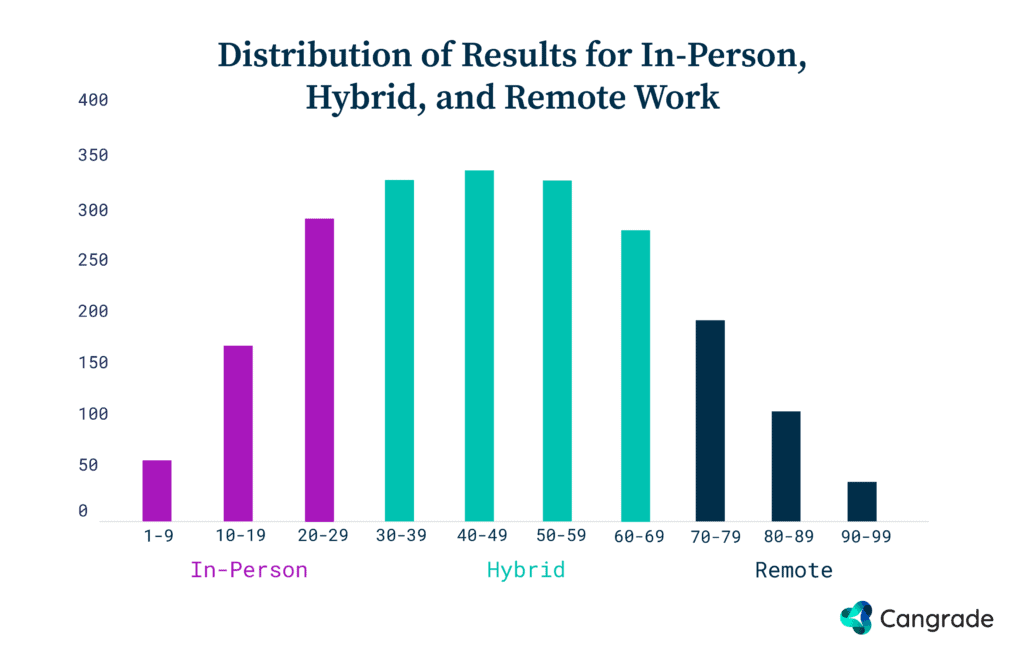59% of American Workers Thrive in Hybrid Workplaces
For the past year, our science team at Cangrade has been taking a deep dive into remote work.
Here are some of the questions we’ve been hearing from our customers, and you might be asking yourself:
- What makes remote work succeed?
- What makes it fail?
- Which employees will thrive in a remote environment?
- Which will flounder?
- And most importantly…what can an organization do about all of this?
To help answer these, we started by identifying the soft skills that predict employee success in a remote work environment. And developed an assessment to uncover those soft skills and help both employers and employees discover their ideal work environment. Then we built on that research, surveying over 2,000 American workers to understand their working habits, preferences, and where they fell on the remote work spectrum.
The results? Most people are not best suited to working remotely every day – and similarly, few should be in the office five days a week. Instead, the majority (59%) do their best in a hybrid workplace. Whereas 17% thrive remotely and 24% in person.

This predominance of hybrid work as the optimal work arrangement for the majority of American workers in our sample isn’t surprising given the psychological research on the benefits of the social support that you get from in-person work. Having a positive relationship with your supervisor, in particular, can be especially impactful on your mental health.
In general, psychologists accept that there is a dual pathway of work/home stress. Meaning that if one environment is overly stressful it will affect the other. Conversely, it can also have a “buffering effect” where the social support received in one environment can alleviate the stress in the other environment. This means that, for most of us, having significant social support in these two environments is essential to our well-being.
Finding the right fit for your work environment
How can organizations find employees who won’t struggle with a hybrid workplace pre-hire? Use a pre-hire assessment that scores employees on the soft skills critical for hybrid work to prevent any problems before they happen.
How can organizations help their existing employees thrive in a hybrid workplace when they are better suited to in-person work? The competencies that underpin remote work can be taught and developed by managers within an organization.
Set up a coaching structure to build these skills in employees. For example, the top driver of remote work success is “Follow Through.” Here are some coaching tips we suggest for Follow Through in particular:
- Set regular meetings and touchpoints
- Outline detailed goals and keep checking in on them
- Maintain open and regular communication
- Develop and use systems to track progress
- Brainstorm potential setbacks that may occur and how to handle them
In summary
Employees with different soft skills naturally fit different work environments. If your organization is a remote workplace, pay close attention to the soft skills of the candidates you hire and of the employees you already have. Help prevent employee underperformance, burnout, and attrition by hiring for the right soft skills, and then support the development of any weaker soft skills with coaching by supervisors.
Find out how Cangrade can help you identify the perfect candidates for your work environment. Request a demo today.